Charles Pakana (Victorian Aboriginal News):
In this, the first episode of the VAN Talks podcast, we’re going to start a series of conversations about the reconciliation movement in Victoria post the 2023 referendum. Despite some concerns that reconciliation is dead, at Victorian Aboriginal News, we recognise the anguish experienced by many as a result of the referendum, but we hold firmly to the belief that the reconciliation movement is anything but dead.
Joining me to discuss this and kick off our ongoing conversations is one of Australia’s leading authorities on reconciliation, Professor Andrew Gunston. He is Associate Deputy Vice Chancellor, Reconciliation and Professor Indigenous Studies at Federation University, where he’s established and leads the National Centre for Reconciliation, Truth and Justice. On top of that, he’s also Co-Chair of Reconciliation Victoria and sits on several national reconciliation committees. And even further, he’s been with us on various interviews throughout the referendum, on the Referendum 23 tapes podcast. Professor, welcome back to the podcast, or welcome to our very first episode of the New VAN Talks podcast.
Prof. Andrew Gunstone:
Thanks very much, Uncle Charles. I’m delighted to be here.
Charles:
Let’s kick it off, Professor. You seem to have adopted a stand that reconciliation should be substantive rather than performative. How does that actually look in real and practical terms?
Andrew:
Absolutely, Uncle Charles, I’ve argued for many years that reconciliation needs to be a substantive and meaningful movement. So, many people see reconciliation predominantly in terms of improving relationships, which is very important. My argument though, is that reconciliation and many others have made this argument as well, reconciliation needs to incorporate a range of other key issues such as recognising Indigenous rights such as self-determination, addressing truth telling, looking at education.
Charles:
This is something that you actually wrote about in the paper recently where you talked about a whole lot of things, self-determination, indigenous rights. There was a stack of things but it wasn’t just about non Aboriginal people working towards reconciliation but it was actually involving the Aboriginal people because self-determination has to involve the Aboriginal people. So that’s a bit of a different stance to a lot of other people in the taking that, where they look at it well as Aboriginal people, we don’t need to do any reconciliation. All the work’s on the non-Aboriginal side.
Andrew:
What I mean by that Uncle Charles is that with reconciliation movement what we need non-Indigenous allies to do is to advocate with any of these spheres influences about the importance of recognising Indigenous rights. So we saw in the referendum, one of the many things we can take away from the referendum was that the wider Australian community don’t understand the importance of Indigenous rights.
They don’t understand that the United Nations declarations for the rights of Indigenous peoples has been ratified and endorsed by Australia, which actually recognises many Indians rights that Indian people has long campaigned for. So we need to make sure that the reconciliation movement supports Indigenous peoples in their calls for self-determination. Reconciliation isn’t enough to just improve relationships. It needs to address issues such as Indigenous rights, addressing racism, addressing issues of structural reform. And so my discussion about that I’ve written about recently about the difference between substantive reconciliation and. Performative reconciliation can be quite easily seen in the campaign. During the referendum, we had a number of RAP organisations that recognised the importance of reconciliation in their own organisation, but have failed completely to actually look at ways to support the referendum. And that failure illustrated that they weren’t really looking at substantive reconciliation. It’s not enough just to have reconciliation morning teas or putting up Indigenous art on walls, as important as that is?
Charles:
Well, well, just you mentioned failure, failure in what way? OK, well, they might have had the morning teas and putting up some artwork, but what do you think those reconciliation organisations should have been doing more to support the reconciliation movement in the current or in the referendum arena as it was?
Andrew:
So a number of a number of RAP organisations recognize the importance of self-determination within their own organisation. They recognize the importance of Indigenous voices in their own organization, but they failed to recognise the importance of that within the Australian government to have a voice to government. And this failure was justified by these organisations because they said that they didn’t have to be making a stand, and it was their decision to be neutral. And a lot of universities did this as well, Uncle Charles, they said our role is just to provide information. We don’t necessarily have to take a stand. Yet Professor Megan Davis, one of the architects of the Uluru Statement, criticised that decision. And I agree with her because the actual act of deciding not to take a stand is in itself a political decision. Silence is political. And so these organisations, I think, failed their stated commitments to reconciliation by not actually endorsing the Uluru Statement From The Heart and not endorsing the importance of a First Nations Voice to Parliament. In broader terms organisations need to engage with a whole range of these more structural reforms within their own organisations, within their spheres of influences to have meaningful reconciliation.
Because if it’s just about improving relationships, it’s important as that is not going to go to the heart of the matter and address centuries of colonisation, of racism, of dispossession in this country.
Charles:
We’ll get into some of those things in a few minutes. But let’s just take back to the referendum. And I don’t want to go over it far too much because that’s one of the things we’re not going to do at VAN is just rehash the referendum. But obviously one of the most telling statements that came as a result of the referendum was Professor Marcia Langton saying, well, reconciliation is dead, now we recognize that that was a moment of passion and she’d been under an incredible amount of pressure leading up to the referendum and during it. Do you think really reconciliation is dead? Because certainly we’re seeing the opposite.
Andrew:
So I’ve a huge amount of respect for Marcia Langton. I’ve taught Indigenous studies for many years and Marcia Langton’s articles arise on my syllabus and students a huge amount of respect for. She was treated appallingly during the referendum. What does it say about this country, Uncle Charles, when an Aboriginal leader called out racism and was criticized by calling out racism more than the people who actually were racist? So I think she was treated appallingly in the campaign. I completely understand her concerns about reconciliation. My personal view is reconciliation isn’t dead, but performative reconciliation should well and truly be buried. I think performative reconciliation, which is just reconciliation, just for the sake of it, without any meaningful structural form, should not be what we’re focusing on. We should be focusing on genuine reconciliation and there is a lot of hope in this country. I know the referendum result was absolutely appalling and I acknowledged completely the grief that many Indigenous peoples are, are experiencing and the hurt of many non-indigenous people as well. But from the perspective as Co-chair of Reconciliation Victoria and talking to my state and Commonwealth counterparts in reconciliation peak bodies, there has been an enormous growth in engagement with reconciliation bodies over the last six to seven months. And what is incumbent upon those of us in reconciliation leadership roles is to look at ways to keep that momentum going into the future. In Victoria’s case, we have many, many more members that are signed up. We’ve got many more people that have joined local reconciliation groups and this is replicated across Australia. We’ve had over 30 to 40,000 people join the Yes 23 campaign, one of the largest social movements in Australian history. There is an enormous amount of support for non-indigenous people for the referendum. We need to make sure we galvanized that support moving forward. So I think there is hope for reconciliation, but we need to ensure that we address these structural issues that have long been neglected.
Charles:
We actually saw from the referendum results that the Yes vote was markedly stronger in the inner suburbs of Melbourne and other more built-up areas around Vic. Now if we take that as being an indication at least of a desire to further the reconciliation movement, how then can reconciliation be better promoted to the outer suburbs and more rural and regional areas of Victoria?
Andrew:
It’s a really good point. I recognised this very early on in the campaign that we’re going to really struggle in the outer suburbs and regional Victoria. And so within my sort of area at Federation University, which is a university that is located in the outer suburbs and the regions, we put a lot of effort into doing campaigns and events out in communities. And also Reconciliation Victoria, we did a number of community events across regional Victoria as well. So there was a lot of effort put into it and it was interesting when we did go to these events there was a small group of really committed supporters out there, which is great, and they were very engaged with the events, but they were very small numbers and they felt very isolated. We struggled to get media attention out in the regions. There wasn’t much interest from local media outlets. So there’s a lot of work to be done in the regions. And as you say, when you look at the data from the individual polling booths, it clearly shows that outside the capital cities there was very significant drop of support for the Voice. I do want to say one important proviso to that, though, is that when you look at the individual polling booths for remote communities, for remote Aboriginal communities, they were overwhelmingly in support, absolutely. So whilst overall there was very little support for the Voice in regional Australia for those Indigenous communities there was strong support and clearly justified the long-advocated argument that there was a strong support for an Indigenous voice department from Indigenous communities.
Charles:
You mentioned Andrew, that the Federation University had done some activities prior to the referendum in the outlying areas. This in actual fact, being in Berwick, being a fairly outlying area, the onus seems to also be on those RAP organisations, those organisations, regardless of the industry, that actually have a reconciliation action plan. Do you believe that the onus is actually on them to go out there and do more beyond their organisation itself? They’ve got to go out to their immediate communities. Are any of them doing that? And if not, what’s holding them back? Is there a fear?
Andrew:
That’s a really important point. So there’s about 5000 organisations in Australia now with RAPs and that constitutes about 50% of the Australian population that work in organisation with raps. It’s a very significant National movement. However, of those thousands of organisations RAPs, there are only a few 100 that are in the top sort of two leadership roles of Elevate and Stretch RAPs. And those organisations are generally doing a really good job to actually look at ways to engage in their spheres of influences, they certainly have a remit to do that. But there’s a lot of newer organisations that are that are early in their reconciliation journey and haven’t sort of understood the importance of the galvanizing, their sort of areas of importance as well.
So for example, in Ballarat, Uncle Charles, my understanding there’s only two organisations with RAPs, actually only two organisations, the entire Ballarat Region Federation University and one other that actually came out in support of the Voice. And that’s really disappointing because there’s a lot of organisations in Ballarat with RAPs. So again, as I said earlier. I do call on all RAP organisations to be much more committed to standing with Indigenous peoples on these key areas of voice, treaty and truth. And remember whilst the Voice was voted down, the other, aside from the heart, does call on Australians to walk together for voice, treaty and truth. There’s still truth and treaty areas that many states are looking at. And so there’s still opportunities for RAP organisations in general to start being more engaged with these spaces.
Charles:
Well, you mentioned that there’s still a focus there on voice, though, and in various community sections there is now this change of focus to treaty and truth rather than voice, treaty and truth. But voice for First Nations communities are still regarded as a crucial step forward for Australia. So how can the reconciliation movement seek to support this in light of the reconciliation results?
Andrew:
The voice, treaty and truth are still really incredibly important. It’s important to note, as I talked about a lot during the campaign, is that many States and territories are already well under way with these three key elements. Victoria, we’re the most advanced. We already have a voice in terms of the First People’s Assembly of Victoria, we are developing a treaty through the First People’s Assembly negotiating with the Victorian government and of course you have the wonderful Yoorrook Justice Commission that’s implementing truth telling. So Victoria is setting the pace, but every other state and territory are doing one or more of these elements as well in their role. SA, for example, has a voice mechanism that’s been legislated. So other States and territories are doing this work already and as I said during the campaign in Victoria, the sky hasn’t fallen in. We still have jobs, our children can still go to school. So to me Victoria’s a great example of how it could work successfully and not to worry about all the mistruths and lies of the of the No campaign. But moving forward now, we’re still an opportunity for Australians for reconciliation advocates to engage in their own state and territory-based versions of the voice Treaty and truth. And to look at ways that that we can support Indigenous leaders as Indigenous leaders move to see how else we can look at voice at the national level. But also to enact the other elements from the Uluru Statement of the Heart which the Albanese government’s committed to, which is the Makarrarta Commission, which oversees the process of agreement making and truth telling.
Charles:
You made mention of the fact that South Australia had legislated for a voice earlier on the year to state Parliament. They though actually had put off their elections for that particular voice until after the referendum. Given that they were concerned, it would muddy the waters. Even though this is a bit outside Victoria and our remit is in Victoria, it is of particular importance. Do you see that the result of the federal referendum will have an impact on SA’s move to actually getting a voice up and going even though it’s legislated?
Andrew:
I hope it doesn’t, but my understanding is that the South Australian opposition has now said that they won’t support the Voice and hopefully the South Australian government will remain committed to that. But we know that in Queensland, in NSW there’s starting to be a bit of a walk back from different political parties about whether they will support some of these initiatives. In Victoria, the Victorian Government’s still strongly supporting voice treaty and truth, which is fantastic. So I think it’s really important for those reconciliation advocates to still try to put pressure on the governments and advocate to governments across Australia to keep pushing this because we’ve started to see an appalling backlash since the referendum. We’ve had people like Tony Abbott question the validity of Welcomes to Country for goodness sake. This has been some shocking backlash. And we’ve got to be very careful in this climate that the Conservatives aren’t taking too much from referendum result to try to push back against issues at state-based areas as well.
Charles:
Well, let’s look at schools then. Schools I think are looked upon as an area of hope for the future. And I’m well aware that there was an enormous amount of interest in the referendum and the statement from the heart from primary and secondary schools. I actually did a number of talks at schools. I think you did some at schools too. There was a lot of interest there bearing in mind that I think around about 70% of the year 12 cohort in Victoria were voting in the referendum. But what do you believe that schools, primary and secondary can, and indeed should be doing to further reconciliation within Victoria?
Andrew:
I think the key thing that schools, universities, TAFE’s, all education institutions in our society need to be doing. Is to do much more truth telling and to do much more about acknowledging history in this country. So when I went to school, Uncle Charles, I learned about the only things I learned about Australia were Ned Kelly, Pharlap and Don Bradman, and to be completely honest.
Charles:
And Captain Cook
Andrew:
Cook too, of course, yeah and to be completely honest, my kids have just nearly all finished their schooling. And it has got better, but it’s still pretty lacking. And so I think there needs to be much more engagement from schools because you could see that in the referendum. One of the reasons why the referendum lost, in my opinion, was so many of the falsehoods and lies propagated by the No campaign were believed by the wider population because they just simply don’t have that education to understand what these lies are. So the idea that it was fine to legislate the voice, but not to put in the constitution If people had an understanding of the last 50 years of governments of both persuasions failing to continue with their versions of the Indigenous voice over the years and just abolish those voices when they’re actually not convenient anymore, people would have understood from that history why it was so important to put it in the Constitution to protect that against political games from different parties. That’s just one example of dozens of arguments made in the referendum campaign that people believe because they just weren’t educated. So I think education, Uncle Charles, is critical to enabling a more educated population.
Charles:
So what are some things specifically you’d like to see within the education system?
Andrew:
I like the genuine history down of this country and I, you know, I used to teach, but I don’t teach anymore at universities when I did teach, we taught a lot of political history of this country. I think it’s important to teach not only the appalling things that happened in this country, but to celebrate the resistance, the activism of Indigenous peoples over generation. That’s something I’ve always taken huge inspiration from is to read about and understand the generations of Indigenous activists who’ve resisted colonisation practices over generations. To teach those sort of processes so people can understand. For example, very few people understand the existence of stolen wages. I’ve done a lot of research on stolen wages and I remember watching 12 Years a Slave in cinemas a few years ago and I really felt like standing up in the cinema and saying to people, do you know, do you know slavery did occur in Australia as well? Because the vast majority of people would not know that. We had slavery in this country. We had slavery in this country for generations.
Charles:
People tend to think, though, that that happened up north and not necessarily down here. Exactly, but it really was across Australia.
Andrew:
My research looked at Victorian practices. We conclusively showed in the research that Victorian governments, Victorian managers of reserves in Victoria, systematically stole money from Indigenous peoples through theft of wages through poor employment practices, through not providing Social Security endowments through creating trust funds, but then exploiting those trust funds, they systematically did this for generations and so that’s been shown right across Australia that to me stolen wages is a great example of the past policy that still has significant impact today. So one of the reasons home ownership levels aren’t the same for Indigenous peoples As for non-indigenous peoples is there’s nowhere near the amount of generational wealth that happens because generations of Indigenous peoples have not had that generational wealth because of stolen wages. So.. those histories of past practices and the contemporary repercussions are really important for people to understand.
Charles:
You’d have to be pretty hopeful then for the outcomes of the Yoorrook Justice Commission, given that in the letters patent that was issued to the Justice Commission, there was actually intimation or even a statement that a lot of the work is going to contribute to an overhaul of the educational system. So these are the things that you see will come as a result of Yoorrook’s final works.
Andrew:
I’m a huge admirer of Yoorrook. I know the commissioner as well as deeply honour the Deputy Commissioner, Sue Ann Hunter. So Deputy Chair of the Yoorrook Justice Commissioner, Commissioner Sue Ann Hunter is the National Centres Advisory Board, and they’re doing terrific work. And to me, truth telling isn’t just about what happened in the past It’s truth telling is about what happens today and what happens in the future.
Charles:
And they’re looking to that, of course.
Andrew:
Absolutely, absolutely. So they’re looking at and it’s the first truth telling body in Australia’s history and it’s got the powers of Royal Commission And so it’s already talked to government officials, to members of parliament, to ministers to key bureaucrats about some of the key issues. They’ve looked at some damning reports and findings into the criminal justice system, into the out of home care system. And so I think the Yoorrook Justice Commission is incredibly important. Hopefully other states are going to proceed down that path. So truth telling is absolutely vital to have a genuine, educated population who then can make better decisions in the future about reconciliation matters.
Charles:
So reconciliation is not just a simple little goal, is it? It’s an incredibly complex thing.
Andrew:
Absolutely. I don’t see it as a destination. I see it as a journey.
Andrew:
Yeah, long time to get there. But we have to push harder on this journey. I think many non-Indigenous peoples have joined this campaign and we need to find ways to galvanised that support. But I was mentioning that before. I was reflecting back in 2000 when you had a million people March across bridges and walks across Australia, including 250,000 Sydney Harbour, and that level of support was amazing. But that that dissipated over the next couple of years and so we then lost a bit of momentum back then. We need to make sure that the momentum we’ve got at the moment continues moving forward into looking at ways for people to become more engaged and reconciliation.
Charles:
So what are some of the things we can do to maintain this momentum? Because there has been an enormous amount of momentum as a result of the referendum. You mentioned before that the Yes campaign was one of the largest social campaigns and movements in the country’s history. How do we maintain that before everybody, with all their good intentions, fades off into the bushes and we’re back to where we were a few months ago or a few years ago?
Andrew:
I think, you know, I’d really encourage people who are interested in continuing that momentum to join local reconciliation groups. Victoria’s got 29 local reconciliation groups throughout the state. I was talking to the CEO, Nicole Finlay the other day. We’re looking at creating some more reconciliation groups in areas that people are really keen. That’s a really great way to help galvanized that support. Lots of those community groups are based in the regions, which is where we desperately need more engagement on reconciliation. So I think joining reconciliation groups across Australia, getting involved in your reconciliation action plans at work one in two people now work in organisations with RAPs, getting engaged to that is important. The goal of Federation University’s reconciliation action plan is to have it embedded right across the university. So it’s not just myself and others who are leading this work. We want everyone to feel part of it. So being involved in that’s important. And then also really starting to engage with Indigenous media and starting to understand some more engagements like we talked about the history and education systems, but the media is also very important. So what you’re doing, I think is absolutely critical. Indigenous media plays a massive role. I was so disappointed with the mainstream media during the reconciliation campaign.
I didn’t feel that they questioned, argued and reacted and challenged some of the lies of the No campaign to the extent they should have.
Charles:
And we’ll be talking to John Paul Janke about that in the future episode because we yarned about that prior to the vote and definitely we shared some concerns about that. So that is something we’re following on.
Andrew:
The other thing that that I think we all need to do as non-indigenous allies is be brave to move from safe to brave to challenge. When we hear racism, we need to challenge that. I think it’s important to acknowledge the enormous racism in this campaign towards Indigenous peoples, not just on social media where I heard of. I heard of indigenous organisations having a 50-fold increase in blocking people on social media for racist attacks. But also in real life. I knew colleagues of mine who were verbally attacked in cafes. I had a friend of mine who was on a plane who had to move seats on a plane because he was being verbally attacked by two people in business seats on a plane. Children were scared to go to school. There was enormous racism. Non-indigenous people need to really understand that. And to look at ways we can challenge and stand up against racism. Some of the lies of the campaign I had seen in multicultural leaders tell me that members of their community were being contacted By No advocates to say if the yes vote gets up, they would lose their land, they would be deported from Australia and they would have to pay higher taxes. Now if non-indigenous people hear this, they need to be very much challenging those lies. As we saw 30 years ago during the naive title debate, these lies came up then it’s the same story it’s incorrect and we need to challenge that. So non-indigenous people need to be much more engaged.
Charles:
At standing up against racism and I think in Victoria that’s going to be really important, especially with the movements being made by the First People’s Assembly in Victoria with regard to treaty, because that’s something that is not stopping. We heard from Ruben Berg and Aunty Esme Bamblett the day after the referendum saying that OK, this is the voice was not the only game in town and definitely treaty is going forward. So a lot of those stories and a lot of those furphys and those lies and those misleading comments are going to rear their ugly head again. It’s going to be more important than ever, I think, in Victoria that those allies actually stand up and be brave.
Andrew:
Absolutely. I think the work of Yoorrook Justice Commission, the work, the first Peoples’ Assembly Victoria fantastic and I think we’ve got a really bright future in Victoria because of their leadership, which is brilliant, but it is also really incumbent upon knowledge as allies upon the reconciliation movement to keep educating. Our families, our communities, our workmates, because really we don’t want a situation where a future government comes in and reverses this work. The reason why we wanted this in the Constitution was to protect the voice against future hostile governments. We’ve already seen some state oppositions starting to push back against voice, treaty and truth in their states. We want to make sure that the great work of Yoorrook, the great work of First Peoples’ Assembly, is bulletproof that we have a treaty that’s not going to get overwritten in 10 years’ time. So the work of Reconciliation Victoria in regards to this state is absolutely critical to help move those opinions of 97% of Victorians to understand the importance of voice, treaty and truth here as well.
Charles:
Professor Gunston, thanks for your time.
Andrew:
Thanks very much, Uncle Charles.


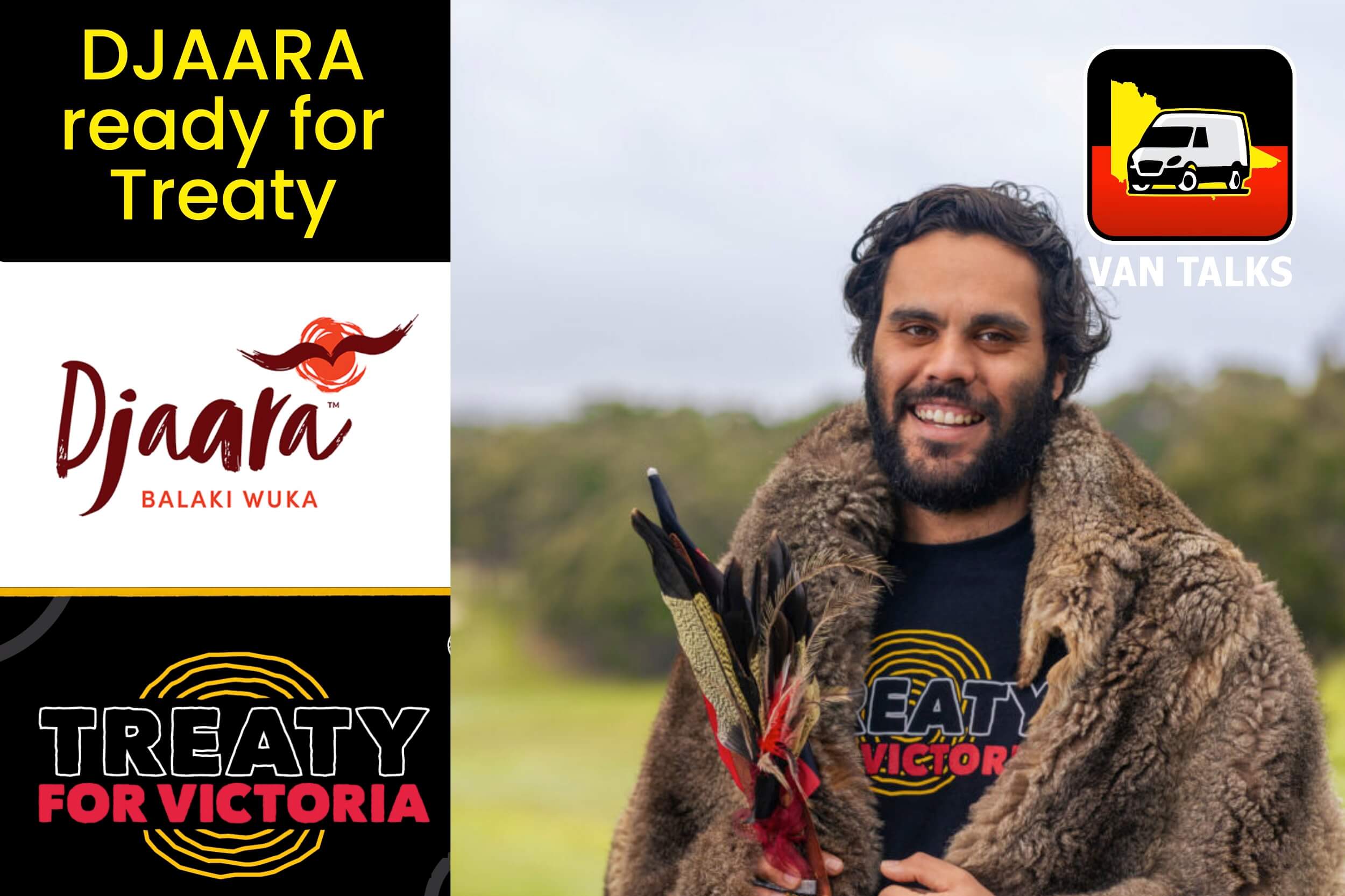
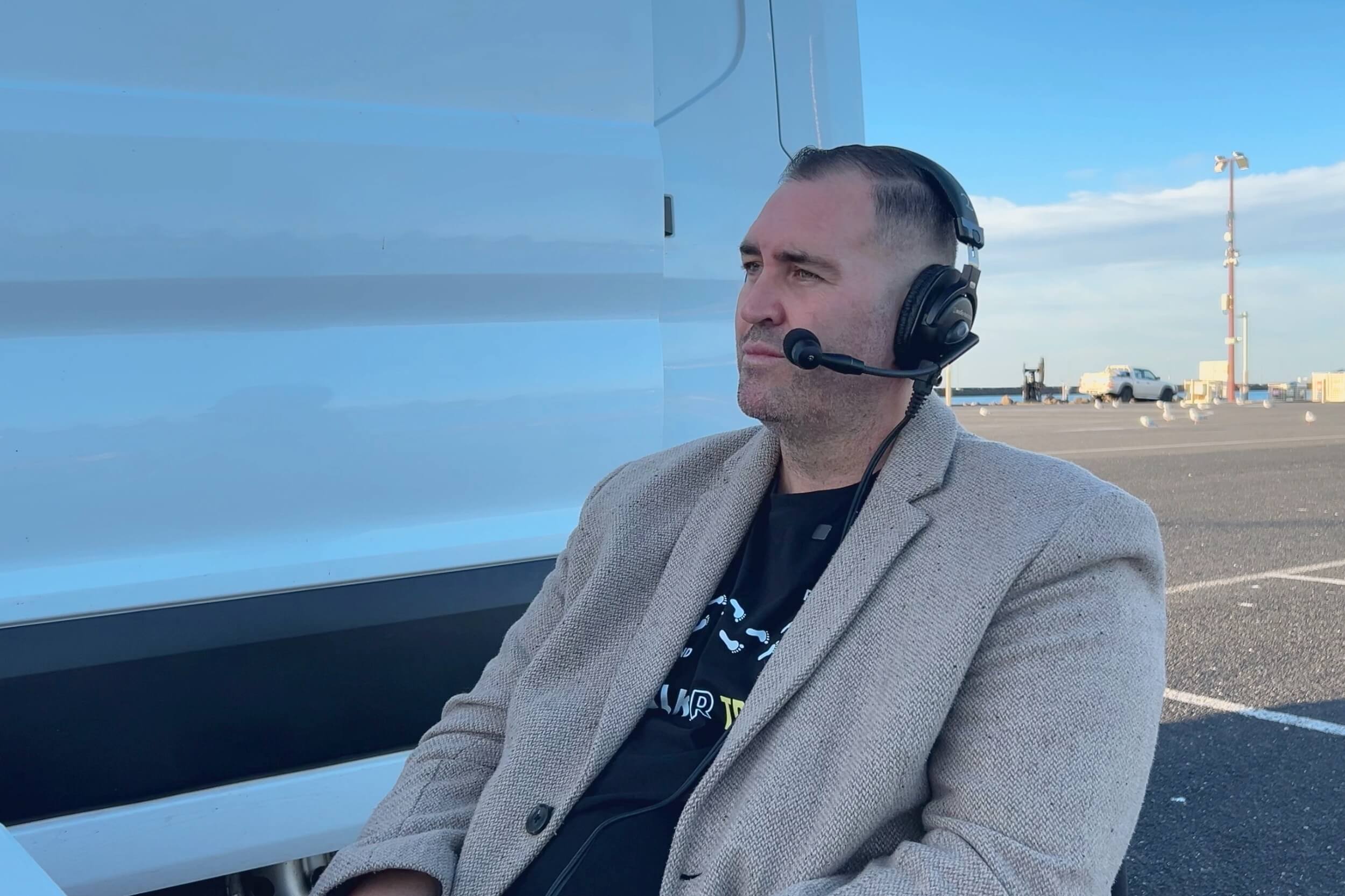
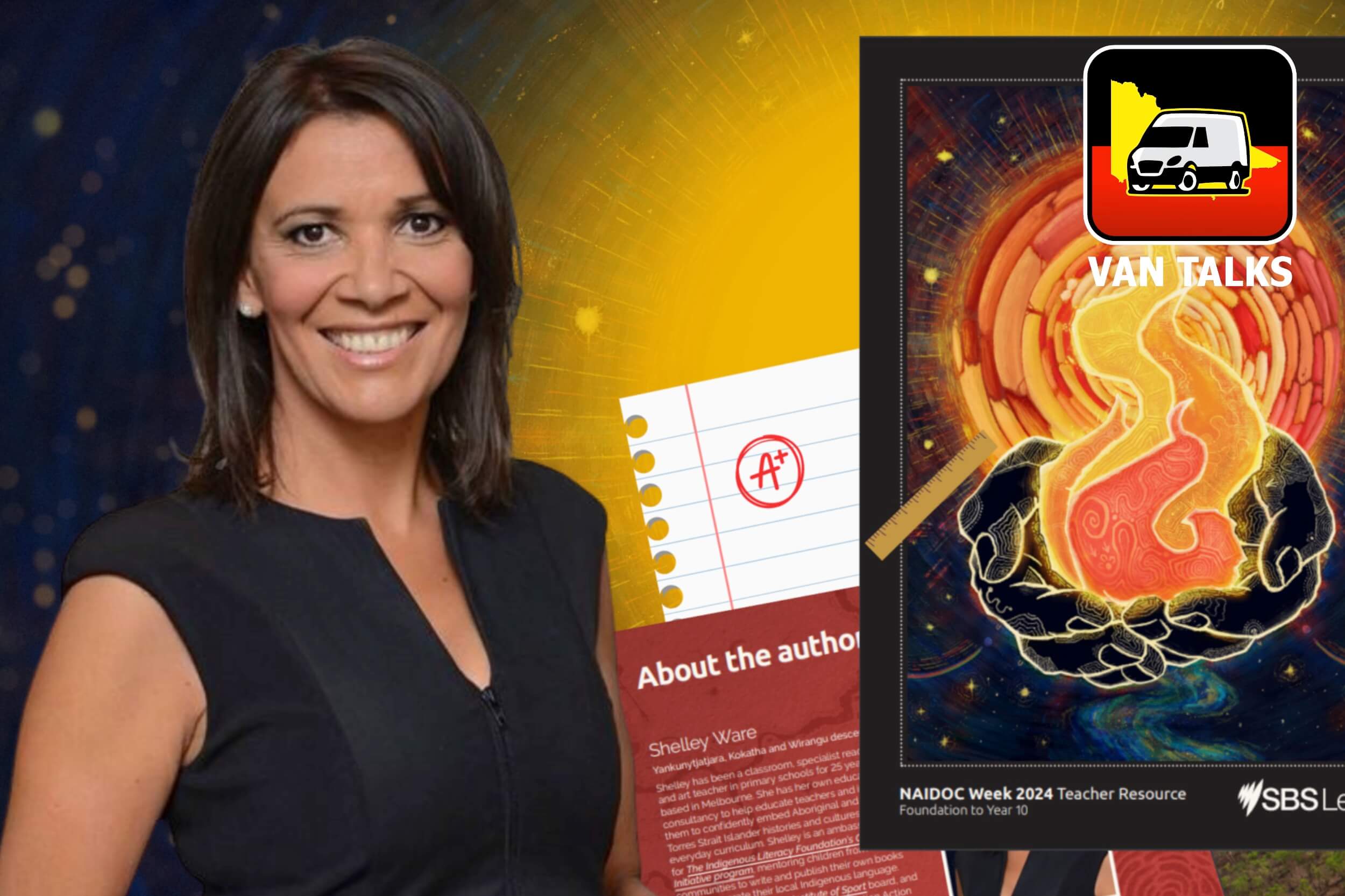
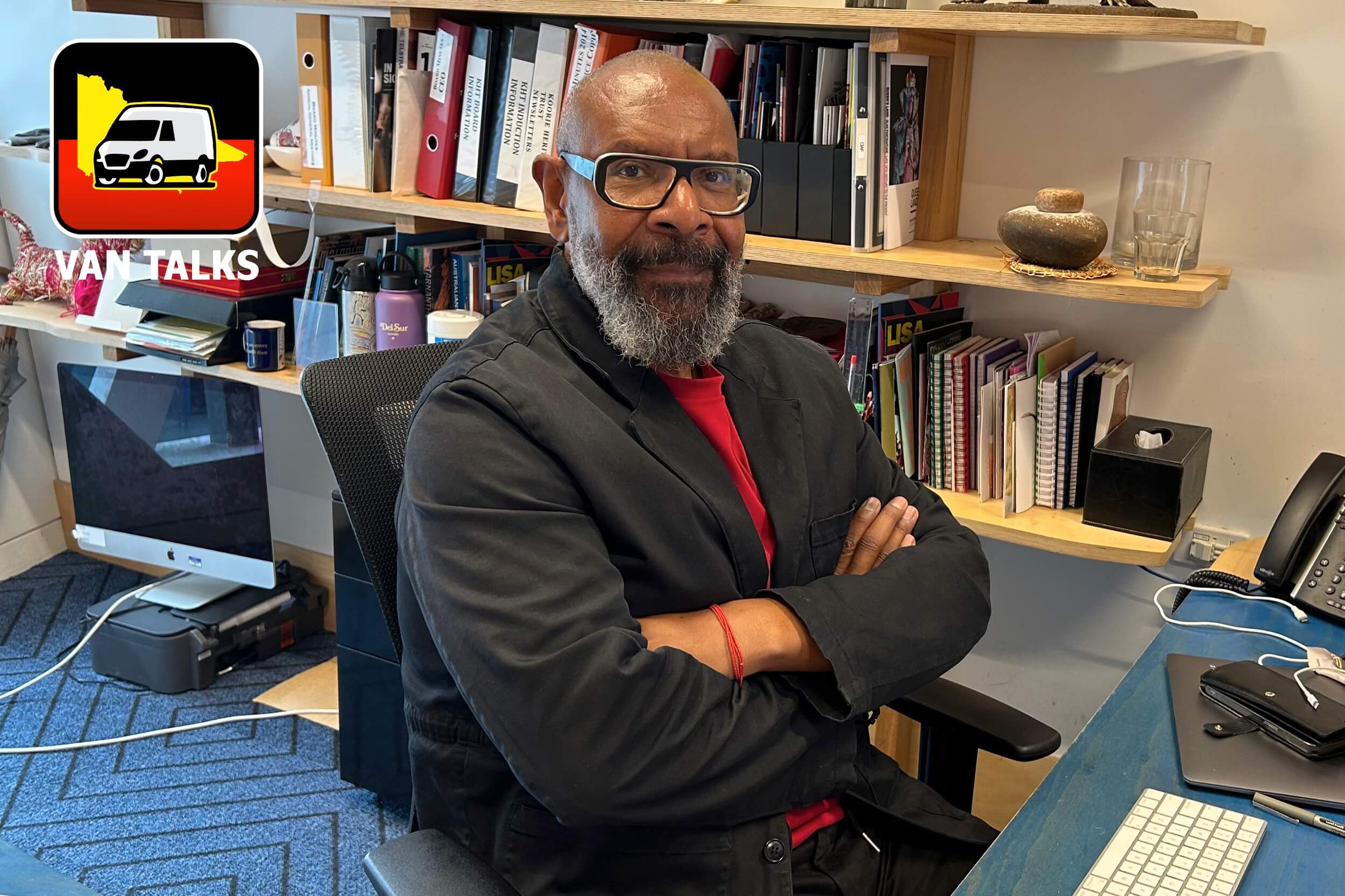
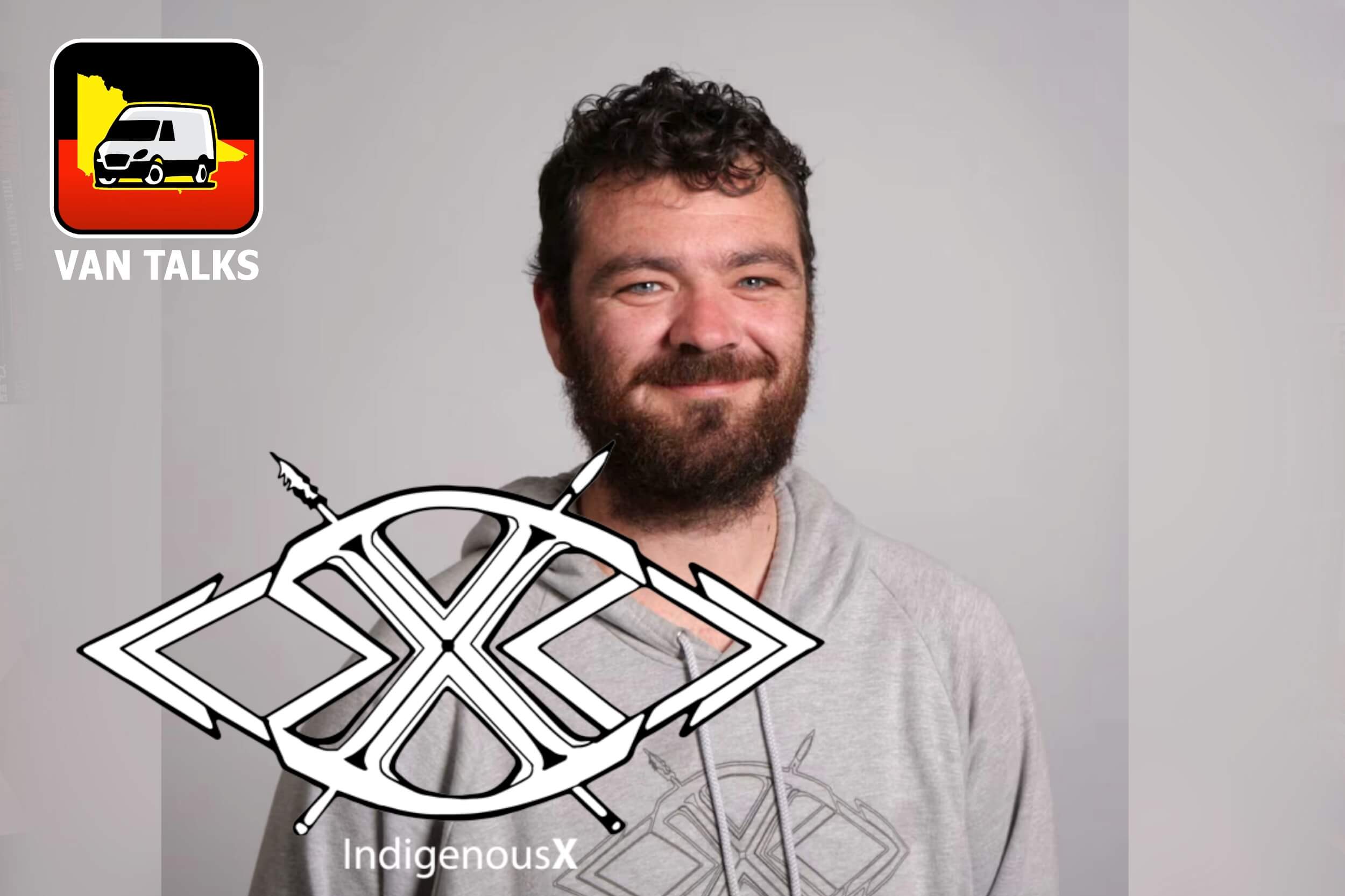

0 Comments